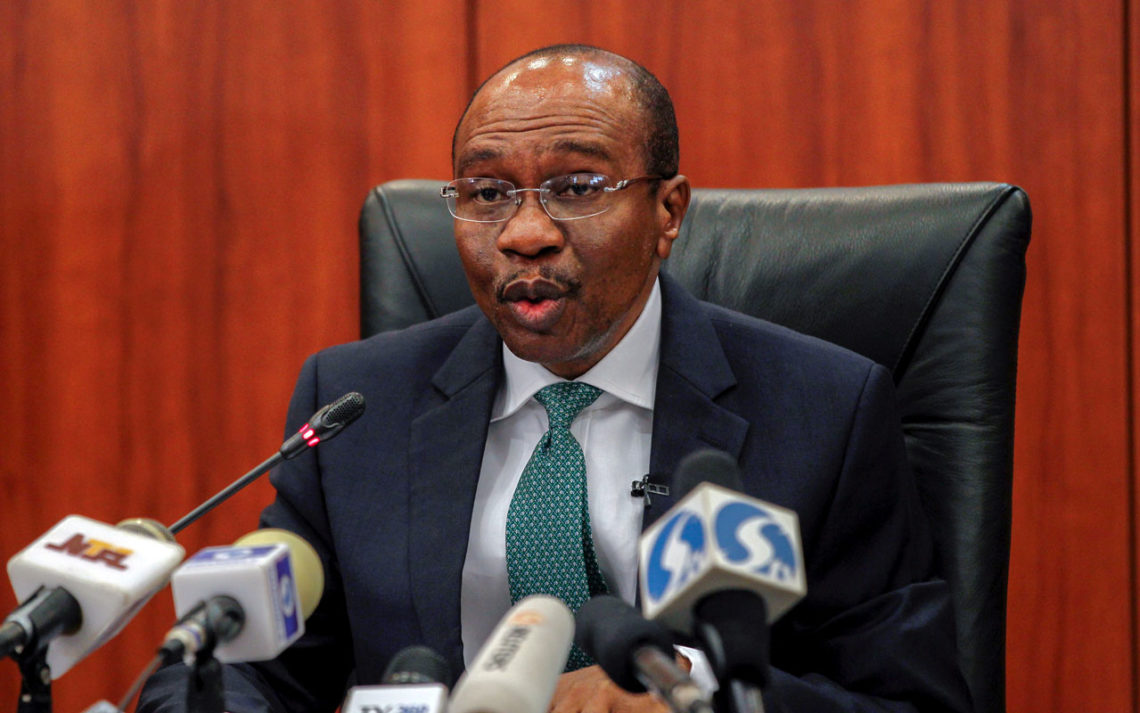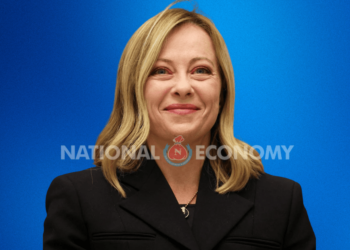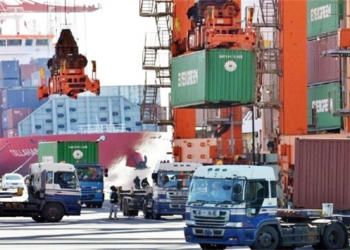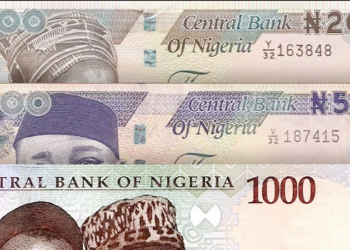Nigeria has continued to grapple with economic challenges. These challenges include: Sovereign debt of N42.84 trillion ($103.31 billion) amid low revenue generation, weak exports, blooming terrorism, impact of COVID-19, high unemployment rate among others.
The economy is also suffering the heat of rising inflation, tepid economic growth, exchange rate volatility, widening budget imbalance/deficit, increasing poverty, unemployment among others.
However, the Central Bank of Nigeria (CBN), as part of efforts to heal the Nigeria’s ailing economy and boost its growth, has administered various monetary policies to tackle the nation’s economic problems.
Among these policies are the RT200 (Race to $200 billion forex inflows), which is a foreign exchange repatriation initiative that aims to boost non-oil exports; and the Tertiary Institutions Empowerment Scheme (TIES) that intends to wean undergraduates and graduates off the addiction to white-collar jobs and focus their energy on entrepreneurship.
The RT 200 programme was introduced by the CBN and Bankers’ Committee in February, to raise $200 billion in foreign exchange earnings over the next three to five years from non-oil proceeds. Economic experts said the policy is a step in the right action especially at a time Nigeria is experiencing unreliable accruals in the Foreign Exchange (FX) reserves; shrinking from $39,650 billion in April to $38,540 billion in May 2022.
A financial expert, Philip Ojo, commend the introduction of different policies by the apex bank which he said would strengthen investors in the non-oil sector whose products are destined for offshore markets.
He said, ‘‘The RT 200 policy mandates exporters to meet international export standards before qualifying to earn the maximum benefits equal to the earnings of competing exporters of rival products from other countries. The policy is borne out of the need to mainstream export-bound non-oil sector products as a means of earning more stable and sustainable FX inflows to insulate the Nigerian economy from crippling shocks and FX shortages. The desired outcome would be to enhance foreign exchange inflow, diversify the sources of FX inflow, increase the level of contribution of non-oil exports to economic growth and Gross Domestic Product, ensure stability and sustainability of FX inflows, and support export-oriented companies to expand their export operations and capabilities.’’
Already, the policy has been attracting forex inflows into the economy from the non-oil sector. The governor of the Central Bank of Nigeria (CBN), Mr. Godwin Emefiele, at a Bankers Committee dinner in Lagos, recently, disclosed that $4.987 billion has been repatriated into the country by non-oil exporters in 2022. The figure is significantly higher than the $3.19 billion repatriated in 2021. He, however, explained that only $1.966 billion of this amount qualified for the rebate programme, just as he added that only $1.559 billion was sold at the Investors & Exporters (I&E) window or for own use. He further noted that the CBN had equally paid out about N81 billion in rebates to Nigerian exporters.
He urged all stakeholders to work together to reposition Nigeria on a growth trajectory by taking the diversification of the economy seriously, stating that policymakers must help exporters and the economy by adding value to what the country produces and exports. He also pledged to work more to complement the effort of the Federal Ministry of Industry, Trade, and Investment to boost the country’s non-oil export.
He also emphasised the need to improve the country’s road infrastructure, with an emphasis on road infrastructure from the ports, to facilitate the ease of transporting goods for export. He disclosed that feedback from banks indicated interest by exporters in adding value to the products they export, to allow them to benefit from the programme.
Emefiele also urged participants to share innovative suggestions for exploring the non-oil export sector as a more sustainable means of increasing financial flows into the economy and generating employment to spur growth. The incentives available to qualified companies in the RT 200 scheme are derived from quarterly payment by the CBN of N65 for every $1 repatriated and sold at the Investors’ and Exporters’ ( I & E) Window to Authorized Dealer Bank (ADB) for other third-party use, and N35 for every $1 repatriated and sold into (I & E) window for the Exporter’s use on eligible transactions only.
The apex bank has also introduced several innovative financing programmes designed to extend low-cost financing to youth entrepreneurs across the country with the aim of extending credit to youth entrepreneurs across the country. One of them is the CBN’s Tertiary Institutions Empowerment Scheme (TIES).
This financing provides undergraduates and graduates with a platform to access loans with the aim of providing access to capital for Nigerian undergraduates and graduates with innovative entrepreneurial and technological ideas from polytechnics and universities.
Emefiele said only those with a Nigerian polytechnic or university degree will be considered and that priority will be given to innovative entrepreneurial activities with high potential for export, job creation and transformational impact.
Experts said the way forward for Nigeria’s economy is fiscal and monetary policy synchronisation involving: ensuring increased power supply through decentralization and encouraging mini and off-grid solutions.
Latest figures on intervention spending by the apex bank shows that between September and October 2022, under the Anchor Borrowers’ Programme (ABP), the Bank disbursed N41.02 billion to several agricultural projects, bringing the cumulative disbursement under the Programme to N1,067.29 billion to over 4.6 million smallholder farmers cultivating 21 commodities across the country. The Bank also disbursed N0.30 billion to finance large-scale agricultural projects under the Commercial Agriculture Credit Scheme (CACS). Consequently, the total disbursement under the Scheme for agro-production and agro-processing stands at N745.31 billion for 680 projects. In addition, the Bank released the sum of N48.30 billion under the N1.0 trillion Real Sector Facility to seven new real sector projects in agriculture, manufacturing, and services. Cumulative disbursement under this Facility currently stands at N2.15 trillion to 437 projects across the country, comprising projects in manufacturing (240), agriculture (91), services (93) and mining sector (13). Furthermore, under the 100 for 100 Policy on Production and Productivity (PPP), the Bank disbursed the sum of N20.78 billion to nine projects in healthcare, manufacturing, and services. The cumulative disbursement under the Facility therefore, amounted to N114.17 billion in 71 projects. Moreover, the Bank disbursed N4.00 billion under the Intervention Facility for the National Gas Expansion Programme (IFNGEP) to promote the adoption of compressed natural gas (CNG) for transportation and liquefied petroleum gas (LPG) for cooking.
In support of the resilience of the healthcare sector, the Bank also disbursed N5.02 billion to four (4) healthcare projects under the Healthcare Sector Intervention Facility (HSIF), bringing the cumulative disbursement to N135.56 billion for 135 projects in pharmaceuticals (33), hospitals (60) and other services (42).
Under the Micro, Small and Medium Enterprises (MSME) sector, the Bank provided support for entrepreneurship development with the disbursement of N1.33 billion and N10.00 million under the Agribusiness/Small and Medium Enterprise Investment Scheme (AgSMEIS) and Micro, Small, and Medium Enterprise Development Fund (MSMEDF), respectively. Hence, the total disbursement under these interventions amounted to N150.22 billion and N96.08 billion, respectively. Under the Export Facilitation Initiative (EFI), the Bank provided support for export-oriented projects to the tune of N5.34 billion, such that the cumulative disbursement under this intervention stands at N44.58 billion.





